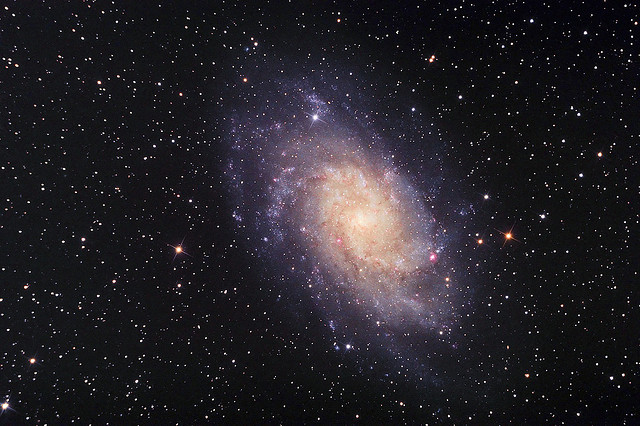"The earth orbits around the sun – or does it?"
March 5th, 2014 A recent survey reveals alarming statistics about literacy rates in the United States, writes Ryan Bachoo, 24, a Commonwealth Correspondent from Trinidad and Tobago, as he examines the survey’s presumptions and findings.
A recent survey reveals alarming statistics about literacy rates in the United States, writes Ryan Bachoo, 24, a Commonwealth Correspondent from Trinidad and Tobago, as he examines the survey’s presumptions and findings.
The major news in mid-February was the newly discovered fact that one in four Americans think the sun orbits the earth – instead of the other way around.
I first read about the story on the UK’s Telegraph online newspaper. Two things hit me by surprise about this ‘front pager’. The first thing is that it had the momentum to become news all around the world, with the second thing being that a story of this context was being used as an indicator to show many Americans’ failure in basic science.
The survey, conducted by the National Science Foundation, released what they would probably term staggering findings that 26 per cent of Americans are unaware that the earth orbits the sun. I have no problem with this survey, but what I do have a problem understanding is the necessity of its coverage. You see, around this same time last year, a study conducted in late April by the U.S. Department of Education and the National Institute of Literacy found that 32 million adults in the U.S. cannot read. That’s 14 per cent of the population. 21 percent of adults in the U.S. read below a fifth grade level.
The math is pretty simple if we try to correlate it. 26 per cent of Americans are unaware that the earth orbits the sun and 14 per cent of Americans can’t read. The latter is over half of the former percentage. It would only take a little bit of knowledge then – far less than the National Science Foundation scientists have through their accolades of Professorships and Doctorates – to show that 26 per cent of Americans are not expected to know that the earth orbits the sun. Secondly, the attempt by both the National Science Foundation and the media to somehow drive that knowing the earth orbits the sun is the amongst the most basic of lessons in life and ought to be known by everyone is in many ways falsifying the very statement, especially given that there could be a quite complicated scientific explanation to it.
You see, the sun spirals around the centre of the galaxy and we orbit the sun vertically, but the very fact we even spiral behind the sun in a circular motion means we are still affected by its gravitational distortion of time and space so the sun is still pulling us with it and causing the circular motion – meaning we orbit the sun. That’s as easy as I can explain this. How many graduated college students, in say business or law, would understand that on first read? Not many. Yet we expect 26 per cent of Americans to just say they understand the earth orbits the sun. Albert Einstein had a great quote about knowledge, “If you can’t explain it simply, you don’t understand it well enough” and that applies here.
The survey by the National Science Foundation amounted to nothing more than a joke against its own scientists in the end, at least for those who understood how ridiculous the whole survey was. On another question, fewer than half (48 per cent) were shown to know that human beings developed from earlier species of animals. What evidence does the National Science Foundation have to say that human beings developed from earlier species of animals? I’m guessing as much as Roman Catholics have of the existence of a God.
I’m not a stranger to the National Science Foundations’ biannual Science and Engineering Indicators, which feature many seemingly embarrassing statistics that detail just how much Americans don’t know about science. However, I thought a question whether the world is flat or not would have been more effective at insulting their own people this time around. As it stands, asking whether the sun revolves around the earth or the earth revolves around the sun is worthless, especially when a far greater per cent than 26 thinks the earth revolves around America.
photo credit: Skiwalker79 via photopin cc
………………………………………………………………………………………………………………
About me:
“Hi, my name Ryan Bachoo. I’m a Journalist and Public Relations Practitioner from Princes Town in the twin island of Trinidad and Tobago. I’ve moved into the field of Mass Communication now. I currently work for the West Indies Cricket Board, protecting the online image of West Indies Cricket.
I’ve been a Broadcast Journalist at Cable News Channel 3 for three years. For the Commonwealth Youth Secretariat, I write on topics of politics, war and economics.”
Ryan Bachoo
Journalist & Public Relations Practitioner
The People’s Writer
I speak for those who have no voice!
…………………………………………………………………………………………………………………
Opinions expressed in this article are those of the author and do not necessarily represent the views of the Commonwealth Youth Programme. Articles are published in a spirit of dialogue, respect and understanding. If you disagree, why not submit a response?
To learn more about becoming a Commonwealth Correspondent please visit: http://www.yourcommonwealth.org/submit-articles/commonwealthcorrespondents/
…………………………………………………………………………………………………………………




